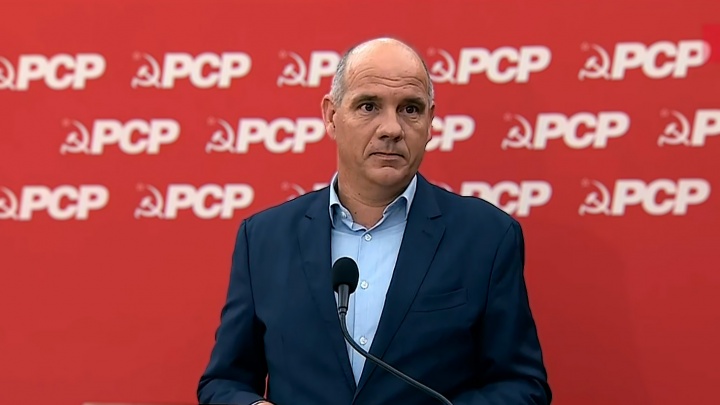Stop the deterioration of the national situation, for an alternative policy of progress and development
1. The announcement that the Prime Minister decided to make today, apart from a singular propaganda stunt, not only does not add anything to dispel or remedy the facts that remain unclear, but it also reaffirms the government's intention to pursue its agenda at the service of big capital, to attack public rights and services, to worsen exploitation and injustice.
The Prime Minister's decision to resign from the company he owns is a belated expedient that neither clarifies nor dispels the signs of the government's promiscuity with the big economic and financial interests.
An attempt to sidestep the facts involving himself and other members of the government. The intention to turn the page on this succession of cases so that the government can “concentrate” on its actions can only be understood, looking at the anti-social and anti-democratic policies and projects it is pursuing and promoting, as a threat to the living conditions of the workers and people, to the future of the Country and its sovereignty. It shows and expresses a mingling of the exercise of public functions, private interests and the promiscuity between political and economic power.
2. Besides the gravity of the facts and events, it's important not to forget the essential point: almost a year after it took office, the reasons that led the PCP to present a motion to reject the Government Programme, which was not adopted at the time, have been fully reaffirmed. This government's action and what it means in terms of postponing the solution to problems and making them worse, in a logic of denying and destroying fundamental rights, in order to favour private and speculative interests, is the natural corollary of its choices.
The increase in problems - from public services, healthcare to housing, the rise in the cost of living to rights and wages - is the result of a policy that sees every problem as a business opportunity for big capital and clear proof that the government is not in a position to respond to national problems and is in itself a factor for discrediting political life.
3. This government and its policies do not deserve trust, but condemnation and censure. With the authority and coherence of those who have not harboured expectations from the outset, who have denounced and fought its actions and refused any complicity in its decisions, including the State Budget, the PCP will present a motion of censure against the government.
Censure of the practices, facts and events involving the government, but above all censure of a policy of low wages and pensions, attacks on rights, deterioration of public services, public disinvestment, limitations on the productive apparatus, promotion of real estate speculation, privatisations and a productive deficit.
The government's political action deserves strong condemnation and censure: the deterioration of the National Health Service, which is getting worse by the day; the disaster that is the housing policy; the lack of response to the problems of public schools; the attack on Social Security; the heightening of the negative aspects of labour legislation; an economy that continues to be based on low wages and precariousness in labour relations; poverty and inequality; the mobilisation of huge public resources, not for the defence and fulfilment of the constitutional mission of the Armed Forces to safeguard national sovereignty and independence, but for the escalation of arms and the promotion of war.
The repeated announcement of future measures to hide the absence of measures in the present, capable of resolving the problems that really affect and worry the Portuguese deserves strong condemnation and censure: the money that doesn't reach the end of the month, anger at injustices, uncertainty about the future.
What the Country needs is an alternative policy that is not subordinate to and at the service of the economic groups, a policy that has no answer from a parliamentary majority that, by uniting PSD and CDS to Chega and IL in what most serves the interests of monopoly capital, also counts on the complicity or support of the PS in this area.
4. The PCP will continue its intervention not only to denounce these options, but also to affirm the solutions that are needed in terms of the right to healthcare and housing, higher wages and pensions, the defence and affirmation of workers' rights, the valorisation of their careers and working conditions, the defence of public services and the implementation of the rights of parents and children, sovereignty and national development.
The evolution of the situation puts in the hands and in the struggle of the workers and the people the demand for and the possibility of a different policy and a different path for the Country. Sooner or later, the Portuguese people, through their intervention and struggle, will decide Portugal's future.
